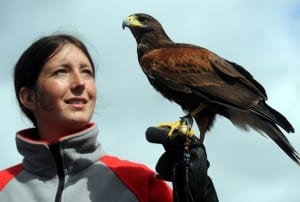
by Ryan Ponto | Sep 15, 2016 | Animal Deterrent Products, Bird Netting
 KANAZAWA, ISHIKAWA PREF. – A falcon takes off in a flurry of motion from the arm of a falconer at Kanazawa Station in Ishikawa Prefecture as tourists stand enthralled.
KANAZAWA, ISHIKAWA PREF. – A falcon takes off in a flurry of motion from the arm of a falconer at Kanazawa Station in Ishikawa Prefecture as tourists stand enthralled.
Surrounding landmarks such as Tsuzumi-mon, a wooden gate in the motif of traditional Japanese hand drums, and a modern glass dome named Motenashi, after the word for hospitality, provide a compelling backdrop for the remarkable exhibition.
Set amid such conspicuous structures, its small wonder that Kanazawa Station was recently lauded for its beauty by a U.S. travel magazine.
“Cool!” one spectator cheered. “Impressive!” commented another.
Though it has all the trappings of a tourist attraction, the avian display is actually driven by a crucial mission: keeping pigeons, and their regular aerial bombardments, away from the station.
Pigeon droppings had been a source of concern for city officials since the dome, which was completed in 2004, was in its design stage. From around 2008, local pigeons began using it to shelter from inclement weather as well as from their enemies. For a city that hosts one of the world’s most beautiful train stations, this was a serious concern.
At first, the city tried nets, then wires and pigeon repellent — all to little effect. Their droppings, meanwhile, continued to sully the buildings and were the scourge of tourists.
In dire straits, a section chief at the city government’s road management department, Masahiro Fujita, consulted with a bird control company managed by a falconer in an attempt to get a handle on the situation. The grand opening of the extended Hokuriku Shinkansen Line was not far off.
From June 2015, trained falcons began to circle Kanazawa Station twice a week, and after two months, the area’s roughly 100 pigeons had disappeared. Each day of patrolling costs ¥30,000, and the city set aside nearly ¥500,000 for the campaign under its budget for the current fiscal year to March 2017.
“No large-scale construction work is needed. It only involves one person and a falcon,” Fujita said, emphasizing the method’s cost efficiency.
To the delight of the local tourism industry, the falconry also proved a hit with visitors to the city of Kanazawa, which is an old castle town.
The falconry is also attracting attention from overseas visitors. Falconer Takayuki Yoshida was questioned and photographed so much that he set up a signboard with an explanation in Japanese and English.
“I like it. It goes well with the atmosphere of the station,” said Satoru Kawauchi, a 36-year-old visitor from Tokyo who watched the patrol.
According to the Japanese Falconers’ Association, a nonprofit organization, falcons have come to carry out a wide range of assignments, including tackling problems with wild bird droppings at factories and reducing the number of aircraft bird strikes. Some falconers have started businesses, an association official said.
About Pigeon Patrol:
Pigeon Patrol Products & Services is the leading manufacturer and distributor of bird deterrent (control) products in Canada. Pigeon Patrol products have solved pest bird problems in industrial, commercial, and residential settings since 2000, by using safe and humane bird deterrents with only bird and animal friendly solutions. At Pigeon Patrol, we manufacture and offer a variety of bird deterrents, ranging from Ultra-flex Bird Spikes with UV protection, Bird Netting, 4-S Gel and the best Ultrasonic and audible sound devices on the market today.
Voted Best Canadian wholesaler for Bird Deterrent products four years in a row.
Contact Info: 1- 877– 4– NO-BIRD (www.pigeonpatrol.ca)
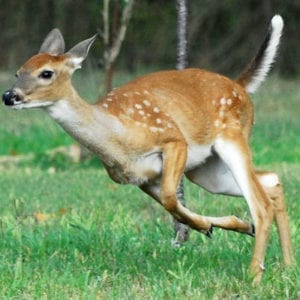
by Ryan Ponto | Sep 14, 2016 | Bird Netting, Pigeon Spikes
 Last week, WIRES rescued an eastern brown snake that had been trapped in netting left on the floor of a garden workshop.
Last week, WIRES rescued an eastern brown snake that had been trapped in netting left on the floor of a garden workshop.
Two snake handlers were required to complete the task, one to hold the head and body of the snake and one to cut the mesh away. Fortunately the snake suffered only minor injury and will be released after some time in care.
Native animals, increasingly displaced from their natural habitat by tree clearing and extreme weather, are resorting to flowering and fruiting trees in our gardens. Tree netting is a popular way to protect fruit from wildlife, but the wrong type can be deadly.
Every year thousands of animals are injured in inappropriate backyard netting or discarded netting. It entangles birds, lizards, snakes, bats and the occasional possum. Hungry animals are easily caught in ‘bird netting’, which has a mesh size greater than 1cm square. Wildlife friendly netting should have a mesh size of less than 5mm. A quick test: If you can poke your finger through the netting space, the mesh size is too big.
If you are using netting in your garden, make sure it is the wildlife friendly type and that it is installed in a way that wildlife do not become entangled. The mesh should be white and have holes smaller than 5mm. There are three wildlife friendly brands of netting: Fruitsaver, Hailguard and Vegenet. Ideally the netting should be tightened over a frame which is clear of the foliage. Netting should be gathered and tied at the base of the tree or drawn tightly to the ground and pegged so that no wildlife can get underneath.
Netting should always be stored in closed bags and disposed of carefully. For further tips, search for ‘wildlife friendly netting’ or have a look at WIRES’ fact sheets on wildlife friendly fencing and wildlife friendly netting.
About Pigeon Patrol:
Pigeon Patrol Products & Services is the leading manufacturer and distributor of bird deterrent (control) products in Canada. Pigeon Patrol products have solved pest bird problems in industrial, commercial, and residential settings since 2000, by using safe and humane bird deterrents with only bird and animal friendly solutions. At Pigeon Patrol, we manufacture and offer a variety of bird deterrents, ranging from Ultra-flex Bird Spikes with UV protection, Bird Netting, 4-S Gel and the best Ultrasonic and audible sound devices on the market today.
Voted Best Canadian wholesaler for Bird Deterrent products four years in a row.
Contact Info: 1- 877– 4– NO-BIRD (www.pigeonpatrol.ca)
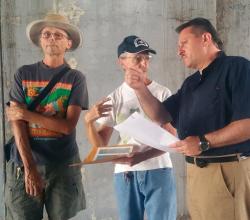
by Ryan Ponto | Sep 13, 2016 | 4-S Gel Bird repellent, Pigeon Patrol's Services
 Two snakes whose writhing encounter in ferny undergrowth at Kembla Heights was captured on video have heralded the start of reptile season.
Two snakes whose writhing encounter in ferny undergrowth at Kembla Heights was captured on video have heralded the start of reptile season.
LET’S DANCE: Two snakes intertwine in a curious scene from amateur video captured at Kembla Heights.
Rachel White noticed the intertwined pair near her Kembla Heights home and posted video of the action as a warning.
WIRES Illawarra reptile co-ordinator Hugh Marriott said the video appeared to show two males locked in combat.
ENSSSNARED: A red-bellied black snake found trapped in bird netting at Kiama makes its displeasure known. Picture: supplied
“They may be trying to force the other into submission, so they can get access to the females that are around,” Mr Marriott said.
But a male-female interaction, akin to foreplay, could not be ruled out.
“If they’re intertwined, not actually biting each other, that’s normally a mating stance,” Mr Marriott said.
“You’ve got to be up close and personal to see that [mating] activity taking place at the end of their tails.”
A snake’s reproductive equipment is located in its cloaca cavity, towards the tip of its tail.
Area reptile handlers have come under increasing demand as recent warmer weather causes snakes, lizards and turtles to end their hibernation.
“We’re coming into that really high-activity period for reptiles, where they’ll stick their heads out looking for food, shelter and a mate,” Mr Marriott said. “We’re fielding calls left, right and centre.”
“Having a pond in your backyard will bring in reptiles because they’re looking for food. They’re attracted to what we provide around our homes.
“Keeping your yard clear of rubbish and having the grass mowed and clear is a good idea.
“If you back onto a bit of bushland or reserve, you’re bound to have visitors who will come into your garden.”
Red-bellied black snakes, diamond pythons and “three or four species that people often mistake for an eastern brown snake” are common in the Illawarra. The region is also home to some small-eyed snakes, golden crowned snakes, black-bellied swamp snakes and tiger snakes.
”They’ve all got to be treated as venomous until proven otherwise,” Mr Marriott said.
“The best action to take is to observe from a distance.
“Never approach or try to kill or capture them, because 90 per cent of people get bitten if they try any of those actions.”
Snake activity can remain high until the end of April, when reptiles will start to bunker down for the winter.
Mr Marriott traveled to Hothersal Street, Kiama on Thursday afternoon to tend to a 1.3-metre red-bellied black snake that had become ensnared in bird netting.
He found the creature healthy and highly agitated. It was eventually freed in Albion Park, with the help of a wildlife rescue volunteer.
About Pigeon Patrol:
Pigeon Patrol Products & Services is the leading manufacturer and distributor of bird deterrent (control) products in Canada. Pigeon Patrol products have solved pest bird problems in industrial, commercial, and residential settings since 2000, by using safe and humane bird deterrents with only bird and animal friendly solutions. At Pigeon Patrol, we manufacture and offer a variety of bird deterrents, ranging from Ultra-flex Bird Spikes with UV protection, Bird Netting, 4-S Gel and the best Ultrasonic and audible sound devices on the market today.
Voted Best Canadian wholesaler for Bird Deterrent products four years in a row.
Contact Info: 1- 877– 4– NO-BIRD (www.pigeonpatrol.ca)
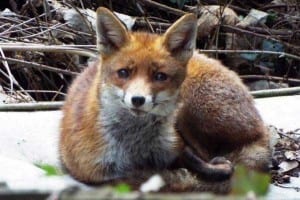
by Ryan Ponto | Sep 12, 2016 | 4-S Gel Bird repellent, Pigeon Patrol's Services
 DEAR JOAN: We hope you can advise us on a problem. We live in the city and have a metal, flat roof garden building that raccoons or opossums are using as a bathroom.
DEAR JOAN: We hope you can advise us on a problem. We live in the city and have a metal, flat roof garden building that raccoons or opossums are using as a bathroom.
We also have a small wood utility shed — seldom used — that rats now call home. We have trapped some but in a few weeks, more move in. Any suggestions for a permanent fix on either problem, or is there one?
Lou Cobb, Livermore
DEAR LOU: The problem on your shed is likely raccoons. For some reason, they like creating latrines up off the ground.
It doesn’t really matter which one is doing it — either way, the stuff is toxic and you should be careful when removing it.
Wear gloves and a respirator, and bag up the poop for the garbage. To keep them off, try taking some coffee cans — do they even make those anymore? — or some sort of container. Punch several holes in the side of the container and put some rags soaked in amonia inside, then put the lid on. Set these on top of the roof.
As for the rats, people get very determined to kill them, but as you have experienced, there are plenty of others to take their place. You need to find where they are getting into the shed and then patch holes and block entrances.
Because the shed is wooden, it might be more difficult to keep them from chewing their way in. If that’s happening, consider putting siding or even metal flashing on the building to stop the gnawing.
You should also take a look at your yard and remove anything that makes it attractive to critters, including pet food left out over night, water bowls and heavy ground covers, especially ivy. Keeping them out of your yard is the first step to keeping them out of your shed and off your roof.
DEAR JOAN: I so enjoy your column but was quite dismayed today to see the letter from about using bird netting to stop skunks from digging.
I do hope the writer is using the wildlife-friendly netting instead of the standard netting that is available in most hardware stores. That type of netting can be deadly to to our local wildlife: birds, lizards, snakes and even bats can get tangled in the netting and are unable to escape, often injuring themselves.
At Lindsay Wildlife Experience, the aquatic garter snake, Ribbon, was a victim of that kind of netting. Some of his ribs were broken, making it impossible for him to survive in the wild. He serves as an animal ambassador, allowing our exhibit hall interpreters to tell his story so more people are aware of the dangers of standard garden netting.
I am writing as a concerned citizen and not as a representative of Lindsay Wildlife, although I do volunteer there and appreciate the opportunity to tell Ribbon’s story.
Marni Berendsen, Bay Area
DEAR MARNI: I was aware of the dangers of monofilament bird netting, but I didn’t think about it being a concern lying flat on the ground. But you are, of course, correct.
Creatures can become tangled in the netting, and if they are unable to free themselves, they can starve to death. They also can cut their mouths trying to chew through it, and break bones, as was the case with Ribbon, in their attempts at escape.
If you’re planning to use netting to protect trees, gardens or as a cover on lawns to prevent creatures from digging for grubs, look for types certified as wildlife safe.
Thanks for the reminder, Marni .
About Pigeon Patrol:
Pigeon Patrol Products & Services is the leading manufacturer and distributor of bird deterrent (control) products in Canada. Pigeon Patrol products have solved pest bird problems in industrial, commercial, and residential settings since 2000, by using safe and humane bird deterrents with only bird and animal friendly solutions. At Pigeon Patrol, we manufacture and offer a variety of bird deterrents, ranging from Ultra-flex Bird Spikes with UV protection, Bird Netting, 4-S Gel and the best Ultrasonic and audible sound devices on the market today.
Voted Best Canadian wholesaler for Bird Deterrent products four years in a row.
Contact Info: 1- 877– 4– NO-BIRD (www.pigeonpatrol.ca)
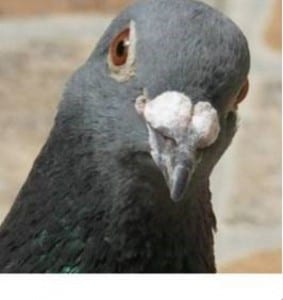
by Ryan Ponto | Sep 11, 2016 | Bird Deterrent Products, Pigeon Patrol's Services
 So much so, that any gulls in the area scatter in fear as soon as they get a glimpse of the black and white falcon.
So much so, that any gulls in the area scatter in fear as soon as they get a glimpse of the black and white falcon.
“It’s all about the balance of nature,” said Everett, a falconer with Falcon Environmental Services.
“He’s a natural predator and the seagulls know that. When they see him, this area becomes unattractive to them.”
Hornblower Niagara Cruises has contracted services from Falcon Environmental Services for the past two years after it added food and beverage services to its lower deck along the Niagara River.
“Wherever you have an attraction, there’s typically gulls that follow the folks around follow the food and they can make quite the mess,” said Mory DiMaurizo.
When Hornblower first launched ed its food and beverage services, they also installed signs asking guests to not feed the birds.
When the pesky gulls continued to gather en masse on the deck area, staff looked for another solution to discourage the winged intruders and birds of prey have proven to be a highly effective yet non-invasive method of seagull control.
Bullet, a 10-year-old hybrid of a Saker falcon and a gyrfalcon, never has to leave his handler’s side. His presence alone is enough to deter the gulls.
“The birds don’t fly, he’s used as a deterrent and it’s 100 per cent effective,” DeMaurizo said. “The bird is there to create a bubble of awareness around us so that the gulls know this is not an area they want to go in.”
Everett and his raptor companion are also a hit with guests, who are eager to find out why they’re spending time at a tourist attraction.
“I’ve met some incredibly interesting people from all over the world,” he said. “I bet Bullet’s photo is on a lot of Facebook pages.”
DiMaurizo said the duo has been especially popular with international tourists.
“In the Middle East and Asia, falconry is a huge sport that many people are interested in.”
Based out of Alexandria, Ont., Falcon Environmental Services also provides bird control at several Canadian military bases as well as a number of landfill sites in New Jersey.
It has been in charge of wildlife management at Toronto’s Pearson International Airport for almost 20 years.
About Pigeon Patrol:
Pigeon Patrol Products & Services is the leading manufacturer and distributor of bird deterrent (control) products in Canada. Pigeon Patrol products have solved pest bird problems in industrial, commercial, and residential settings since 2000, by using safe and humane bird deterrents with only bird and animal friendly solutions. At Pigeon Patrol, we manufacture and offer a variety of bird deterrents, ranging from Ultra-flex Bird Spikes with UV protection, Bird Netting, 4-S Gel and the best Ultrasonic and audible sound devices on the market today.
Voted Best Canadian wholesaler for Bird Deterrent products four years in a row.
Contact Info: 1- 877– 4– NO-BIRD (www.pigeonpatrol.ca)

 KANAZAWA, ISHIKAWA PREF. – A falcon takes off in a flurry of motion from the arm of a falconer at Kanazawa Station in Ishikawa Prefecture as tourists stand enthralled.
KANAZAWA, ISHIKAWA PREF. – A falcon takes off in a flurry of motion from the arm of a falconer at Kanazawa Station in Ishikawa Prefecture as tourists stand enthralled.

 Last week, WIRES rescued an eastern brown snake that had been trapped in netting left on the floor of a garden workshop.
Last week, WIRES rescued an eastern brown snake that had been trapped in netting left on the floor of a garden workshop.
 Two snakes whose writhing encounter in ferny undergrowth at Kembla Heights was captured on video have heralded the start of reptile season.
Two snakes whose writhing encounter in ferny undergrowth at Kembla Heights was captured on video have heralded the start of reptile season.
 DEAR JOAN: We hope you can advise us on a problem. We live in the city and have a metal, flat roof garden building that raccoons or opossums are using as a bathroom.
DEAR JOAN: We hope you can advise us on a problem. We live in the city and have a metal, flat roof garden building that raccoons or opossums are using as a bathroom.
 So much so, that any gulls in the area scatter in fear as soon as they get a glimpse of the black and white falcon.
So much so, that any gulls in the area scatter in fear as soon as they get a glimpse of the black and white falcon.